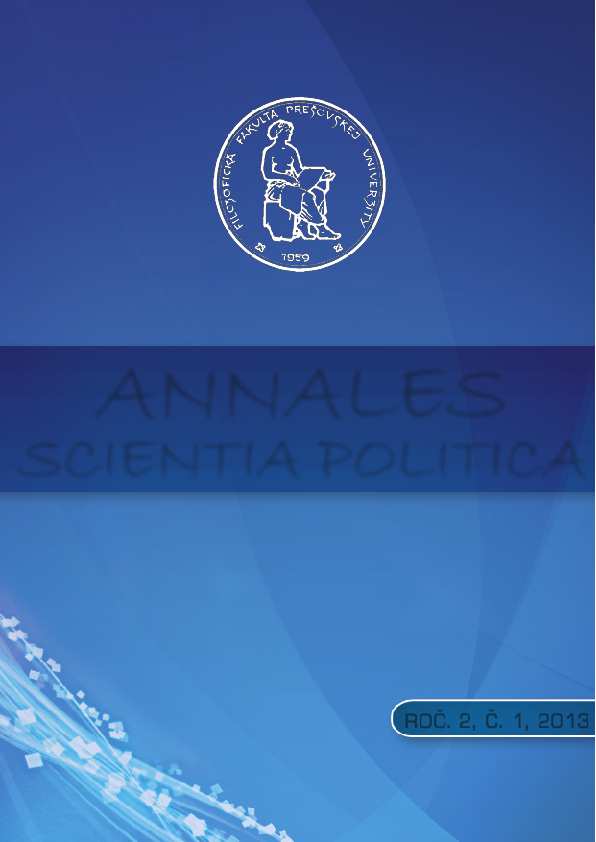„Nepolitická politika“ politickej teológie J. B. Metza
"Non-political politics" of political theology of J.B. Metz
Author(s): Gita GeremešováSubject(s): Politics and religion
Published by: Prešovská univerzita v Prešove, Filozofická fakulta, Inštitút politológie
Keywords: Political theology;Neo-tomistic metaphysics;Enlightenment;J. B. Metz
Summary/Abstract: This study analyzes one of the aspects of J. B. Metz´s political theology, more precisely its anthropological aspect; it contrasts the means and objectives of the political theology with the "non-political politics". Political theology itself is one of the unofficial branches of the present-day Catholic theology; theology after the Second Vatican Council. It distinguishes itself critically from the neo-tomistic interpretation of the world – from the neo-tomistic metaphysics which depicts the world in the dichotomy of the good God and the evil human. Political theology at the background of Kant´s criticism of ontotheology emphasizes „sinful“, ordinary people and their world. It aims to construct a unified world without the superstructure of the religious supernatural; it treats man as a subject that thinks god and is his partner at the transformation of the world. According to J.B. Metz, the anamnetic reason, memoria passionis, is the tool for the transformation of the world = the uncompleted Enlightenment project.
Journal: Annales Scientia Politica
- Issue Year: 2/2013
- Issue No: 1
- Page Range: 20-30
- Page Count: 11
- Language: Slovak

